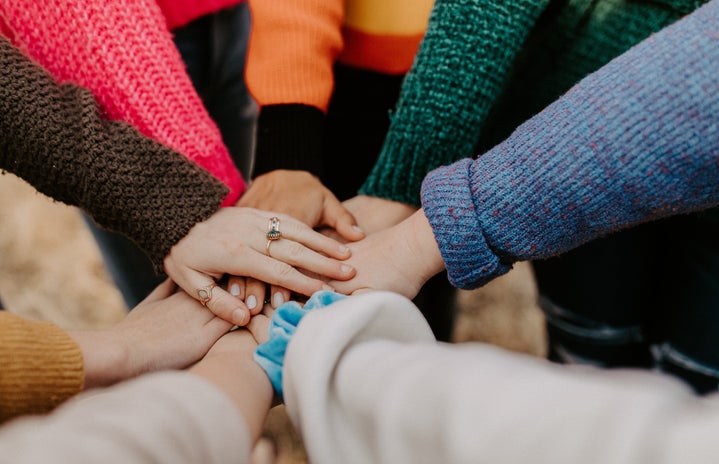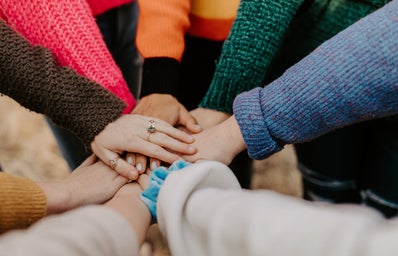A label is worn like a badge. Sometimes it’s one of honor, sometimes it’s one of shame. Who decides that though? Honor to one is shame to another. That’s the complexity of labels. We create visions of who people are, simply based on their self-proclaimed labels: Democrat, Republican, Christian, atheist, pro-life, pro-choice. We formulate expectations for people’s character according to the group(s) they associate with. We are disappointed when these expectations are not met. At that point, we impose our own labels on others. That’s why, more often than not, a label holds too much power. It dictates the way we are “supposed” to think, to act, to believe, and the way we anticipate others to do the same. It sets us up for failure.
So, when are labels useful? When do they serve a purpose? Well, think of language. Most of us identify as English-speakers and a lot of us also identify with another language that permits us to associate with a larger social group. I recently learned in my Spanish linguistics course that, despite the vast number of varieties that exist in Latin American Spanish, linguistic unity persists within this language because people want to belong to a group. They want to understand others and share common experiences. This is when labels are good: when they facilitate human connection, when they bring people together instead of divide.
After all this, you might think “label” is the “L-word” referred to in the title. No, no, it’s actually lesbian. Lesbian is a heavy label, one that groups its members into a niche experience not shared by many others. The lesbian experience is a scary one that, for me personally, has been full of binaries: isolation vs. community, relatability vs. stigmatization, acceptance vs. rejection, intensity vs. ease. The nuances of the experience make it so much easier for lesbians to identify with more broad labels like “queer” or “gay” rather than voluntarily restrict themselves into a subset with little visibility and understanding from outsiders. Very few people out there understand the beauty of lesbian relationships and the unique qualities they carry.
Lately, I’ve felt increasingly ready to embrace this label — not only for myself, but for other lesbians, too. It’s a label I want to transform into something powerful in a way only I can define. I want to empower the label to lift me and others up, not hold us back. I want to stand up to those who reject, stereotype, objectify or discriminate against lesbians by proudly embracing the identity-marker and making it my own. I don’t want to let others’ connotations of the label prevent me from living out a true experience. That fear is not worth it! And, as with language, I want to belong to a group. I want to understand common experiences between me and other lesbians. I want to relate to the women around me. I want to be me, and so I want to be a lesbian. I want this label to be a good one.
Can’t get enough of HC UMass Amherst? Be sure to follow us on Instagram, listen to us on Spotify, like us on Facebook, and read our latest Tweets!


